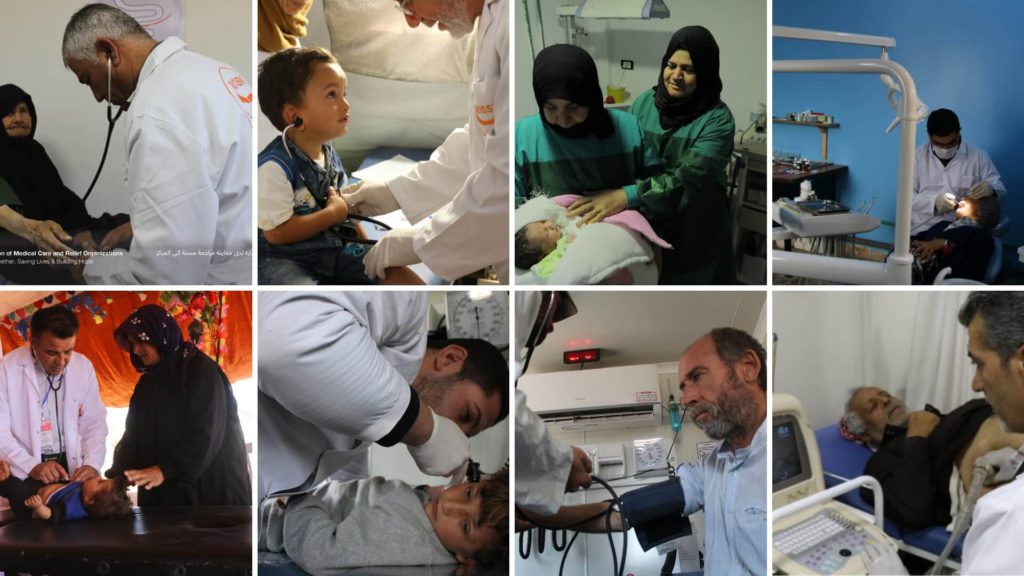
As the Syrian crisis has continued for over thirteen years, the severity and complexity of humanitarian needs remains extensive. Years of continued bombardment, attacks on civilians, doctors, health workers, and healthcare facilities has left an extremely vulnerable population in Syria. The healthcare infrastructure has been decimated leaving people with limited to no access to emergency and specialized medical care as they are struggling with disease and malnutrition among other illnesses. The inadequate access to lifesaving medications and healthcare threatens victims’ lives, especially those with chronic diseases, such as diabetes, asthma, epilepsy, cancer, heart disease, etc., which could lead to further complications and possibly death.
Since 2013, UOSSM has led the initiative to provide primary health care services in Syria; addressing the increasing health needs of the general public, through the rehabilitation of existing, destroyed health care facilities, and the establishment of new medical facilities in areas of need. UOSSM has provided millions with vital health services to the Syrian people affected by the crisis since 2013.
UOSSM also supports other health facilities with medical consumables and medications, based on need and availability.
All primary health care workers are trained according to UOSSM protocols. With over 30% of the trainees being women. This is a result of UOSSM’s dedication to providing equal opportunities for men and women in recruitment and capacity building.
Despite the relentless efforts of other NGOs operating in these provinces, a health gap still remains, showing the need for increased efforts and expansion of intervention in order to improve general public health in the community.
UOSSM provides sustainable and high-quality primary health care services through its primary health care (PHC) centers inside Syria. Since early 2013, UOSSM has rehabilitated many existing PHC centers and established new centers in areas that people do not have access to health care across Syria. Many times, due to the armed conflict and security concerns, several of these PHC centers were relocated, temporarily paused, or permanently closed.
While UOSSM offices in Turkey support programs in Turkey and Syria, UOSSM USA operates through its regional office in Jordan to provide essential services in Jordan and Gaza.
Since 2013, UOSSM has been offering urgent medical interventions in response to internal displacement, providing primary health care services through mobile clinics to ensure the continuum of health care and flexibility needed in hard-to-reach areas and in areas of displacement.
Each mobile clinic provides medical consultations, reproductive health services, psychosocial support services, nutrition services, and referral systems. The mobile clinics offer the flexibility and speed crucial to essential health care in areas of mass displacement, where people are already suffering and have great difficulty accessing medical centers.
UOSSM supports and operates natural birth centers, where pregnant women are provided care by qualified and trained medical staff. This has helped with decreasing the rate of medical error and dangerous practices for mothers and newborn children that may occur with inexperienced staff at home deliveries. These centers offer different services related to reproductive health, such as well-woman exams, miscarriage care, prenatal care, postpartum care, as well as treatment of various feminine diseases. Offering these birth services has played a vital role in reducing medical errors in the short and long-term, for both the child and mother.
UOSSM USA IS A FEDERALLY TAX-EXEMPT NON-PROFIT 501(C)(3) CHARITABLE HUMANITARIAN ORGANIZATION. TAX ID 47-3403988
© UOSSM USA. All rights reserved. Created by akby | Terms of use | Privacy policy